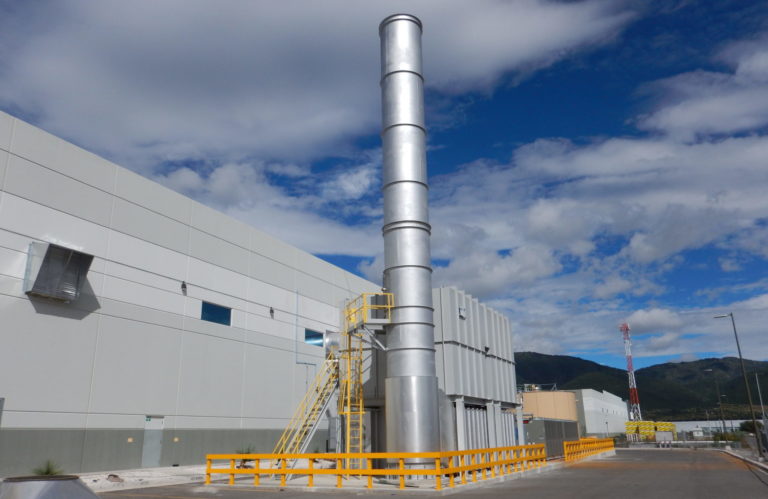

Industrial Air Pollution Control
GIFFIN is a worldwide leader in designing, manufacturing and installation of high quality air pollution control equipment. We provide Volatile Organic Compound (VOC) systems and opacity control systems that fully integrate with new and/or existing processes to comply with federal and state requirements.
GIFFIN offers installation, commissioning and training for a wide range of Regenerative Thermal Oxidizers (RTO) including single, double and multi canister units. The choice of which is influenced by the process conditions and emission limits. Depending on the solvent concentration, each system can be designed for a thermal efficiency of 95%, or more, to minimize the use of support fuel.

Today’s paint facilities are faced with greater regulations on emissions and compliance issues and require even more attention to the means of controlling emissions released to the atmosphere.
GIFFIN has, for years, installed all varieties of abatement equipment including, Regenerative Thermal Oxidizers (RTO), Regenerative Catalytic Oxidizers (RCO), Thermal Oxidizers (TO), concentrators, filter houses, absorption systems, and heat recovery systems, that can effectively treat a variety of paint shop emissions. Systems must be designed to handle the industrial rigors associated with this type of equipment and have enough effective life to warrant the expenditures.
GIFFIN can assist you in determining the right type of abatement system that will fit your needs. All factors that need to be considered include capital costs, operating costs, maintenance costs, etc., that are measured against the performance expected by the abatement equipment.
Often many abatement systems require upstream process air treatment in order to remove particulate before it enters the actual abatement equipment. The main intent of abatement systems is destruction of volatile compounds or other chemicals harmful to the atmosphere. Other less benign materials are carried in the air stream that can pose potential harm to the abatement equipment and can be easily removed via some level of filtration. Filtration methods can be a variety of options that would include waterwash, coalescing type filters, dry filters or separators.
GIFFIN engineers can help provide options and solutions to your filtration needs. We can work with your material engineers and determine the best options available to protect and extend the life of your abatement equipment and evaluate the cost to operate, cost to maintain and capital investments to meet your goals.
GIFFIN field technicians can also sample air streams in order to determine ‘how dirty’ your process air is and what level of filtration would best suit the need.